The Thyroid Function Tests You Need To Know About
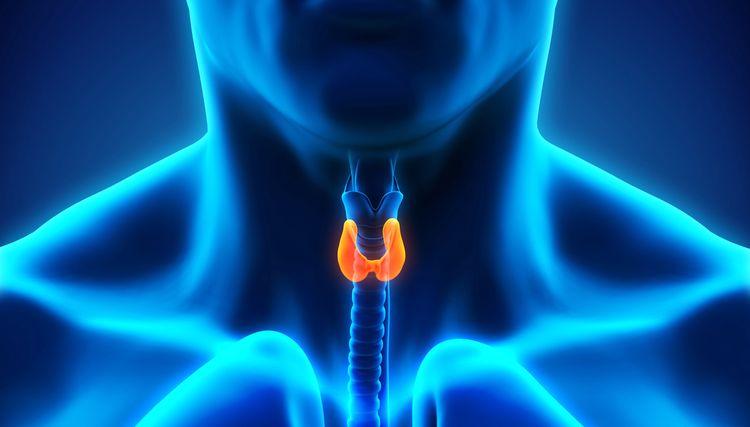
One of the most influential endocrine glands in your body is your thyroid. This little butterfly-shaped organ in your neck is responsible for producing hormones that are used by every single cell in the body. Alarmingly, over 30 million Americans are estimated to have a thyroid disorder, and most of them are women. At least 15 million cases go undetected.1
Thyroid hormone is so important that without enough of it, it’s virtually impossible to maintain the balance and production of all other hormones. Adequate production of thyroid hormone is required to make necessary amounts of growth hormone, progesterone, DHEA, testosterone, estrogen, cortisol, insulin, brain neurotransmitters, and many others.
The reality is that all these hormones work in concert, and the thyroid is a critical part of the symphony. But how do you know if you’re producing too much or too little thyroid hormone?

Thyroid Symptoms
Often, poor thyroid function is accompanied by very common, tell-tale symptoms. However, the difficulty is that the symptoms tend to overlap with other conditions that may not be directly related.
Symptoms associated with underactive (hypo) thyroid function typically include some or all of the following: fatigue, weight gain, inability to lose weight, dry skin, poor digestion, hair loss, brittle nails, cold hands and feet, lack of energy, tendency to bruise easily, depression, change in menstrual cycle, memory problems, and loss of hair on the outer third of your eyebrows.
Hypothyroidism is the most common form of thyroid dysfunction. Although less common, hyperthyroidism (overproduction of thyroid hormone) is just as serious and may include some of the same symptoms as hypothyroidism. Common symptoms of an overactive thyroid tend to include rapid or irregular heartbeat, inability to gain weight, protruding or bulging eyes, irregular or no menstrual cycle, inability to concentrate, nervousness, irritability, difficulty sleeping, increased sweating, and tremors, among others.
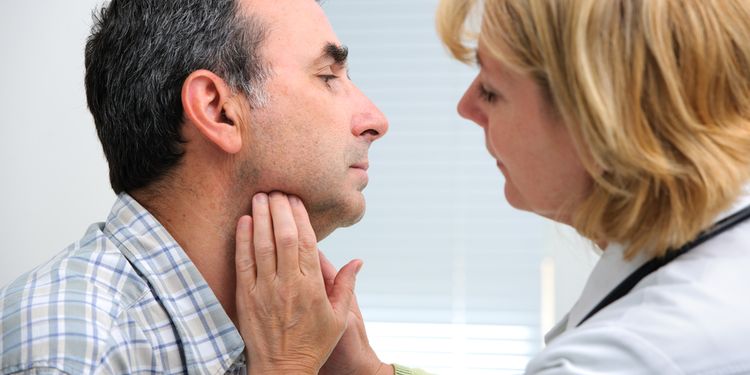
Assessing Thyroid Function
In order to confirm a thyroid condition, analysis and diagnostics must be performed. Methods of determining thyroid function include physical examination, basal body temperature, and laboratory testing. Measuring your body temperature in the morning is a simple and sometimes imprecise method of checking thyroid function.
While this method can be used to help identify a dysfunctional thyroid, it may not be extremely useful in determining how or why the thyroid isn’t working well or if the problem is truly occurring in the thyroid.
Another investigative method is physical examination—looking at and feeling the thyroid. This method can be used to identify the presence of nodules, which may need to be looked at via ultrasound. Again, the limitation of this method is the inability to identify thyroid hormone production and how your cells are using it.
Blood testing is really the primary way to know how well the thyroid is performing. While blood test results represent only a snapshot in time and will change throughout the day, week, or a woman’s cycle, the results tend to be a very good reflection of how the thyroid is operating.
Unfortunately, many doctors include only a few markers of thyroid production on routine work-ups. Most commonly, you’ll only see TSH. If you’re lucky, T3 and T4 will also be included in your blood test. It’s rare that insurance will cover any other thyroid-specific markers. But thyroid function is more complicated than that.
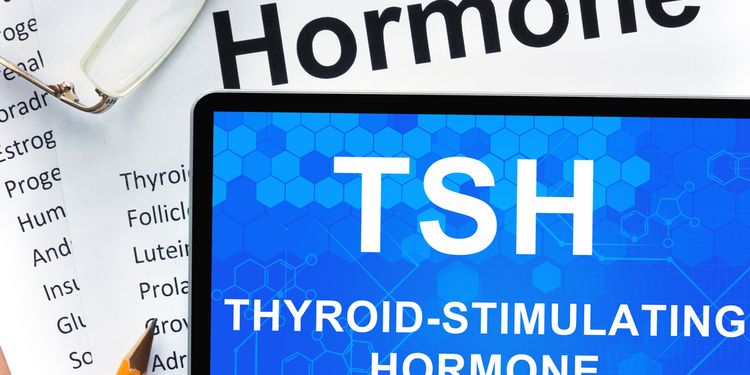
Full Thyroid Panel
TSH stands for thyroid-stimulating hormone. This is a hormone produced by the pituitary gland in the brain that gets sent to the thyroid, telling it to produce hormones. So TSH really isn’t even a thyroid hormone, it’s a brain hormone—and yet it’s usually the only thyroid-related marker included in blood draws.
To get a full picture of thyroid function, there are a number of other thyroid-specific markers that must be run on your blood test. A full thyroid panel should include TSH, total T4 (thyroxine), total T3 (triiodothyronine), free T3, reverse T3 (rT3), thyroid binding globulin (TBG), thyroglobulin antibodies (Tg Ab), and thyroid peroxidase antibodies (TPO Ab). If hyperthyroidism is suspected, you should test for TSI antibodies as well. T3 uptake is another marker that can be included in addition to or in place of TBG.
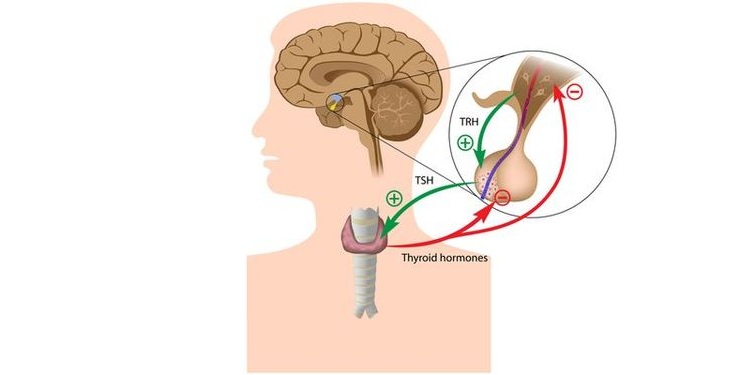
Understanding Your Test
TSH: A hormone produced by the pituitary gland that tells the thyroid to produce thyroid hormones.
T4: Produced directly by the thyroid gland. Inactive form of thyroid hormone. Includes free T4 and bound T4. Approximately 93% of the hormones produced by thyroid gland are in this form.
T3: Active form of thyroid hormone. Includes free T3 and bound T3 and accounts for about 7% of what the thyroid produces. Additional T3 must then be made by converting T4 to T3 in the liver, gastrointestinal tract, and peripheral tissues.
Free T3: Free fraction of total T3. Only free T3 is available for binding to cell receptor sites so that it can be used.
rT3: Made in the liver by converting from T4. Available for binding to cell receptor sites but doesn’t result in cellular activity.
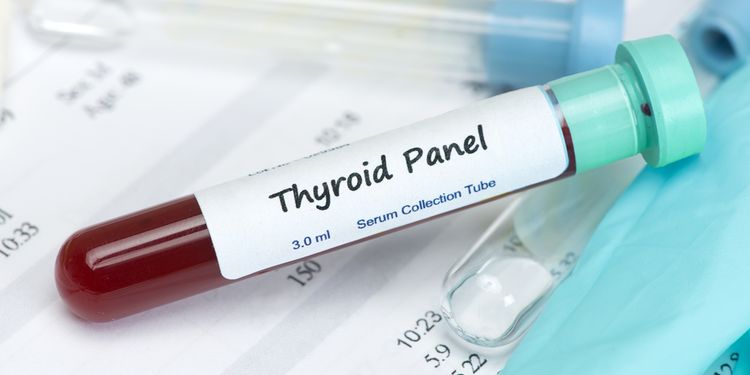
TBG: Protein made in the liver that acts as a taxi cab for moving thyroid hormones throughout the bloodstream. Renders thyroid hormones bio-unavailable until they reach their destination.
T3 Uptake: Percentage of T3 hormone that’s successfully taken up by cell receptor sites.
Tg Ab: Autoantibodies produced by the immune system that target thyroid tissue for destruction.
TPO Ab: Autoantibodies produced by the immune system that target both thyroid and cerebellar (brain) tissue.
TSI Ab: Autoantibodies produced by the immune system that target thyroid receptors and can lead to the overproduction of thyroid hormones.

Thyroid Physiology
Thyroid physiology can be quite complex. If you or your practitioner suspects a dysfunction related to your thyroid, it’s paramount that all the previously listed markers are included in your blood test. From there, an experienced practitioner can determine where things are going wrong.
These markers will help you understand if your issues are upstream at the brain level, if they’re occurring in the thyroid itself, if there are issues downstream of the thyroid where conversion and uptake occurs, or if the immune system is attacking the thyroid. When you can determine where in the dysfunction is occurring, you can begin to identify the underlying contributing factors.

Contributors to Thyroid Dysfunction
In general, a vast majority of thyroid-related issues don’t actually occur in the thyroid. Mostly commonly, the problem can be traced back to circadian rhythm disruptions that result in pituitary dysfunction and poor thyroid feedback controls.
Additional common contributors to thyroid dysfunction are inflammation and excess stress, as these can directly inhibit thyroid hormone production, as well as conversion from T4 to T3. Intestinal permeability, dysbiosis, and impaired liver function can also play a role in under-conversion of T4 to bioavailable T3.
Optimal thyroid function is dependent on many complimentary organs, and when you’re faced with abnormal test results, it can be very useful to use additional diagnostic testing to investigate gastrointestinal, liver, and adrenal axis function. In the case of diagnosed hypothyroidism, an autoimmune condition is usually to blame. Some estimate that as many as 90% of hypothyroid cases are due to an autoimmune condition such as Hashimoto’s.2
Interestingly, 20-30% of those with Hashimoto’s never test positive for elevated antibodies. In this case, an ultrasound may be useful to confirm diagnosis. Because thyroid physiology is extremely interactive with a number of systems in the body, a functional or integrative practitioner can help you truly understand where dysfunction is occurring and how it may be interacting with thyroid hormone production.
